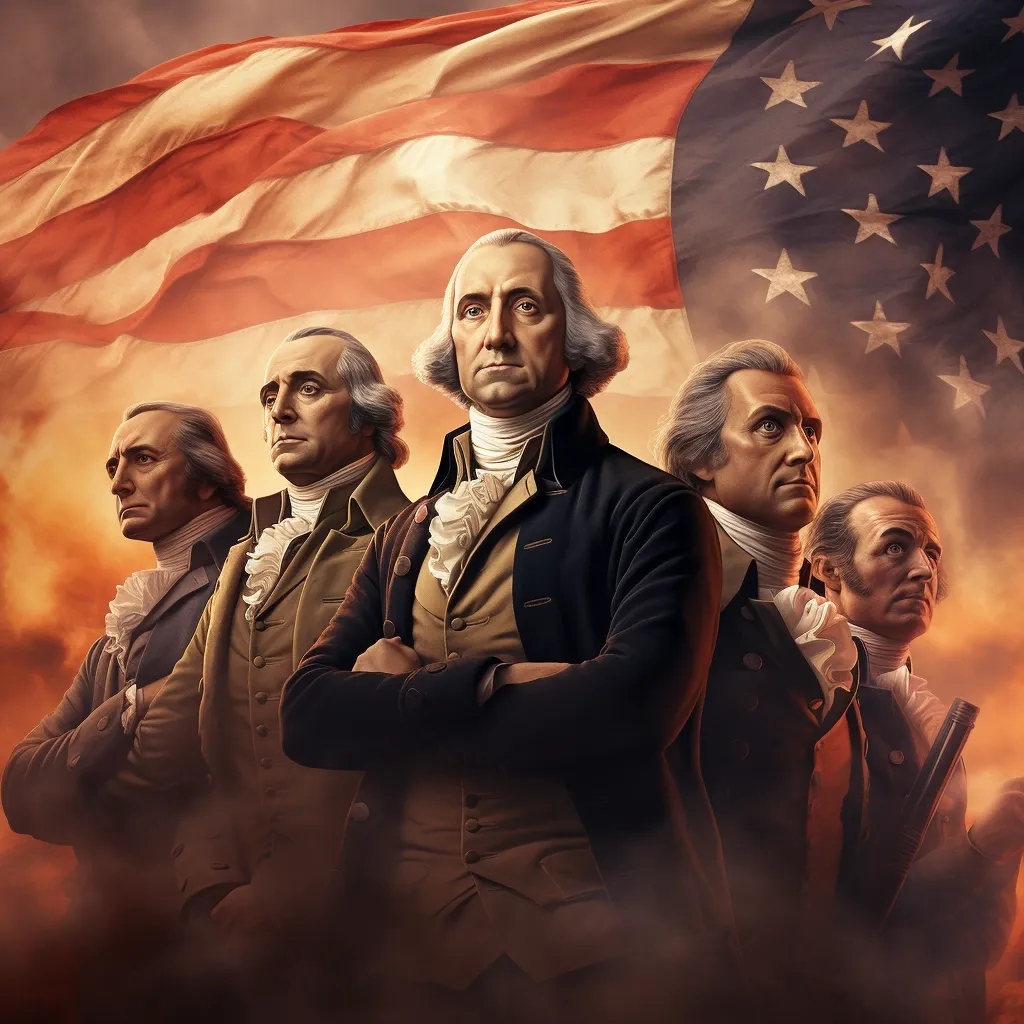The Founding Fathers of the World's Largest Federation

The United States of America, a nation with a storied past, owes much of its foundational strength and enduring principles to the pivotal roles played by its Founding Fathers. These were a group of remarkable individuals who, through their collective wisdom, courage, and foresight, helped ignite the flames of revolution and laid the groundwork for the world's oldest surviving federation. Among these visionary leaders were George Washington, Thomas Jefferson, and Benjamin Franklin—each bringing unique contributions that have profoundly shaped the nation.
George Washington, often revered as the "Father of His Country," set a precedent for future leaders through his unwavering leadership during the American Revolution and his tenure as the first President of the United States. His leadership was characterized by his remarkable ability to unite diverse factions, his stoic presence in the face of adversity, and his refusal to grasp power, famously stepping down after two terms in office. Washington's actions established core tenets of American democracy, such as the peaceful transfer of power and civilian control of the military.
Thomas Jefferson, a polymath who was deeply involved in politics, science, and philosophy, made indelible marks on the nascent republic. His penning of the Declaration of Independence solidified the colonies' quest for freedom from British rule and articulated the foundational belief that "all men are created equal," imbuing the new nation with a sense of purpose rooted in individual rights and self-governance. As the third President and a champion of westward expansion, Jefferson's vision paved the way for America's growth beyond its original borders through purchases such as the Louisiana Territory.
Benjamin Franklin was a true Renaissance man; his contributions spanned from diplomacy to science to journalism. His role in drafting both the Declaration of Independence and the Constitution helped to forge a balanced government that valued both liberty and order. Franklin's diplomatic skills were instrumental in securing French support during the Revolutionary War, a turning point that significantly boosted America’s chances for success. Moreover, his numerous inventions and scientific inquiries fostered a culture of innovation and intellectual curiosity that is still central to America’s ethos.
These Founding Fathers, among others, set forth principles that have allowed America to become a beacon of democracy. Their intellectual rigor established governmental structures that balance power between branches while protecting individual freedoms—a blueprint that has guided America through centuries of challenges and has been emulated around the globe. Their commitment to a more perfect union serves as an enduring reminder that while imperfections may exist within any nation, it is through deliberate reflection and effort that progress is made.
Beyond these three towering figures were countless others who contributed to America’s founding—men like James Madison, John Adams, Alexander Hamilton, and many more who played crucial roles in forming a government designed to adapt and endure. Each brought their unique experiences, convictions, and visions for what this new country could be.
In essence, the legacy left by these Founding Fathers is not just a historical footnote but an ongoing project that current and future generations inherit—the pursuit of life, liberty, and happiness within an evolving democratic framework. This formidable task passed down to us remains alive as long as their ideals continue to inform our society's aspirations towards greater justice and unity. Understanding their contributions helps us navigate present challenges while honoring their extraordinary efforts to establish a land governed by the people it serves—a land capable of overcoming division with unity, ignorance with enlightenment, and oppression with freedom.
